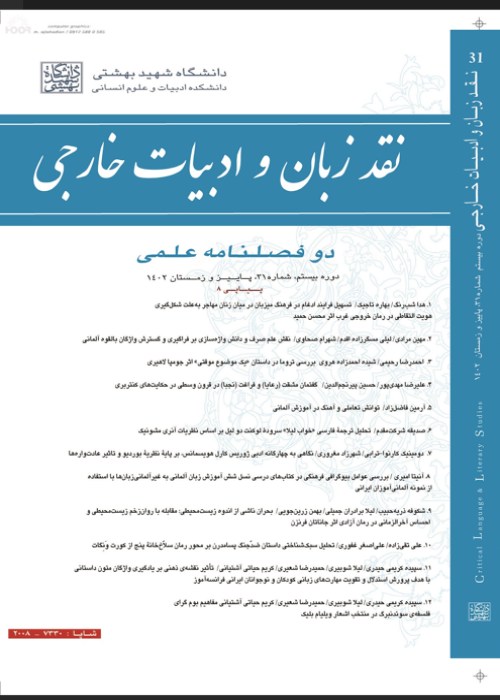A study of Joris-Karl Huysmans’s literary according to Bourdieu’s theory and the influence of habitus.
In the course of one’s life, a person constantly changes due to various environmental and social factors and inevitably adopts new frameworks. One of the most radical changes that a person experiences is the transformation of beliefs and the development of a new identity. In this context, Pierre Bourdieu believes that human being is influenced by factors such as the family, the media, and the governing educational system, and thereby acquires and internalizes a set of schemas, dispositions, and habitus. Serving as a reflection of the realities of the world, literature narrates these developments. Joris-Karl Huysmans’s cycle of four novels—Là-bas (1891), En route (1895) and La cathédrale (1898), and L'Oblat (1903)—is a salient instance of this literature. The author seems to represent the course of spiritual transformations of human being in these works. Drawing on Bourdieu's theory, the present research intends to show how the protagonist changes in these narratives.
Sociological criticism, as a method for approaching literary works, helps examine the social dimension of a text. Many researchers in this field such as Marcel Mauss and Bernard Lahire have explored habitus as one of the key concepts of this type of criticism. There are many literary works that exhibit the function of habitus. Prominent examples include Lost Illusions (1843) by Honoré Balzac, Man's Fate by André Malraux (1933), and Submission (2015) by Michel Houellebecq. This research analyzes Huysmans’s cycle of four novels to demonstrate the impact of habitus in triggering social and spiritual transformation in a person. By studying the protagonist—who is a consistent character and [seems to be] the author’s alter ego in all four works—and the actions of other characters as well as the impact they exert on him, and finally by citing examples from all four works, we will show how an individual undergoes personal, spiritual, and social changes when placed in different situations and socializing with people from different spectrums. MethodologyAs a way to decode human behavior and development, habitus is an important subject of social studies and has attracted the attention of many researchers. This paper draws on Bourdieu's theory of habitus, which he proposed to decode and interpret individual and social developments.
In Distinction:
A Social Critique of the Judgement of Taste (1979), he refers to habitus as a system of practical structures that directs the actions of social agents. In general, habitus means the set of schemas that a person acquires during their lifetime as a result of interaction with different environments. These schemas include how to eat, dress, and socialize, as well as one’s interests and preoccupations, among others.
Analyzing Huysmans’s cycle of four novels with the help of Bourdieu's theory showed that the protagonist, Durtal, was transformed under the influence of society and cultural and religious domains as this character develops new habits such as performing religious acts and practicing spiritual meditation. Thus, our analysis highlighted the extent to which one’s identity, beliefs, behavior, and actions are subject to environmental and social conditions, which are marked by interaction with other social agents. Durtal’s interaction with clerics is a conspicuous instance in this regard. Huysmans has carved out the course of his spiritual development by representing himself through Durtal’s personality.
- حق عضویت دریافتی صرف حمایت از نشریات عضو و نگهداری، تکمیل و توسعه مگیران میشود.
- پرداخت حق اشتراک و دانلود مقالات اجازه بازنشر آن در سایر رسانههای چاپی و دیجیتال را به کاربر نمیدهد.



